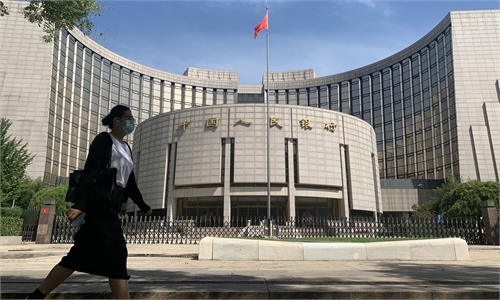 It makes more sense to buy than rent, says an academic who was involved in the Universiti Putra Malaysia study. — Photos: Filepic
It makes more sense to buy than rent, says an academic who was involved in the Universiti Putra Malaysia study. — Photos: FilepicPublic university study shows majority prioritise buying cars, prefer to rent homes near workplace
FINANCIAL reasons continue to keep young Malaysians living in major cities from realising their dream of owning a home.
Among the younger generation, the major concern is high property prices that are many times more than their annual household income.
It is not easy for those with no fixed income or low salary to secure a housing loan.
While money issues are already weighing heavily on people’s minds, the younger generation’s inability to afford a home is exacerbated by the high cost of living.
Housing affordability remains a conundrum in Malaysia despite various initiatives taken by the government through the National Affordable Housing Policy.
The initiative aims to ensure housing affordability is handled in a holistic manner.
A study shows that those aged between 25 and 45 seem to be delaying the purchase of their first home.
Financial commitments
Universiti Putra Malaysia (UPM) Human Ecology Faculty lecturer Dr Mohammad Mujaheed Hassan said the study had shown that other factors also contributed to the issue.
“The Variations in Preferences of the Young Generation in Klang Valley Towards Housing Property Demand” study conducted by UPM in mid-2022 found that the younger generation had high financial commitments.
A total of 2,523 respondents aged 25 to 45 in Kuala Lumpur, Selangor and Putrajaya with individual monthly income of between RM4,360 and RM9,620 were interviewed.
The study aimed to identify this group’s financial level, in terms of their ability to save and invest as well as their financial liabilities.
Mohammad Mujaheed, who was involved in the research, said out of the total, 1,697 respondents or 67.3% were committed to monthly vehicle hire purchase instalments of between RM800 and RM1,200.
“For them, owning a car is a benchmark of their success in life,” he told Bernama.
“Ironically, some of them take public transport to work and leave their cars at home.”
Mohammad Mujaheed, who is with the Social and Development Sciences Department, said the study also showed that 1,833 respondents or 72.7% had credit card commitments with at least two banks.
“To the younger generation, having a credit card is an alternative for them to have regular access to credit and as a cash advance.
“The study also reveals that 843 (33.4%) of respondents were renting a home for between RM500 and RM1,200 a month,” he said, adding that 73.9% of respondents had no disposable income for savings or investment.
Mohammad Mujaheed said based on the study, the younger generation preferred to rent due to several factors, although they could afford to buy their own home based on the monthly rental they had been paying for years.
“They argue that the location of the house that they can afford to pay for is far from their workplace.
“They have to factor in other payments linked to owning a property such as assessment tax and maintenance fees and higher fuel consumption that will further add to their financial burden.
“By renting, they only have to fork out for rent and utility bills.
“They say their rented houses are only for rest and sleep.
“Much of the time is spent outside their house and at work.”
At the same time, some millennials are tied to personal loans, among others to fund their wedding, while others are caught in the credit card debt trap.
This situation is not surprising as the Credit Counselling and Debt Management Agency (AKPK) had earlier highlighted that the majority cases of youths declared bankrupt in the country was due to credit card debt.
Worrying trend
Mohammad Mujaheed said the tendency for young adults to not prioritise home ownership had caused many to be saddled with longstanding debt, preventing them from buying a house despite getting older.
“The situation is rather serious and has contributed to many being blacklisted by financial agencies, living in debt, declared bankrupt and encountering problems such as stress and borrowing from illegal moneylenders or ‘ah long’,” he said.
He said while it was not wrong for the younger generation to own a vehicle or apply for personal loan, they should give priority to home ownership as it was an asset.
Vehicles, meanwhile, depreciate in value annually.
“The value of a house will appreciate every year.
“By paying monthly rental, it appears that we are ‘helping’ the owner to settle his housing loan repayment,” said Mohammad Mujaheed.
He said if the problem persisted, young adults would continue to delay purchase of their home to meet other needs.
It is feared that they will not be able to own their own house in future given the consistent upward trajectory in residential property prices.
“The younger generation should no longer adopt a wait-and-see attitude.
“The longer they wait, the higher the price, given that the growth of household income is not at par with the increase in house prices.
What was worrying, he added, was this group ending up “homeless” when they reached their golden years.
On the possibility that this group would “share” a home with their parents or other family members, Mohammad Mujaheed said this could only be realised if their parents owned property.
“Otherwise, a family will be faced with the possibility of being homeless or continue to rent permanently (from one generation to the next) as they do not own any property.”
He said the younger generation should not use high property prices as an excuse for not buying a house as there were affordable home schemes offered by the federal and state government such as Rumah Selangorku, Federal Territory Affordable Housing Programme and Malaysia Civil Servants Housing Programme.
Affordability gap
Universiti Teknologi Mara (UiTM) Seri Iskandar senior lecturer Dr Azizul Azli said the huge gap between income levels and house prices had prevented the younger generation from owning a house.
“For example, average annual salary increments are about 2% while property values increase between 6% and 8% each year.
“Imagine, in only two years, property prices would have risen by 12% and salaries increased by 4%.
“Despite price fluctuations in the post-pandemic property market, prospective buyers are still not able to ‘catch up’ as their income is still at minimum level,” he said.
As an example, he said the average starting salary for fresh university graduates was around RM2,500 a month.
If they bought a house worth RM300,000, their monthly financial commitment would be about RM1,500, he said, adding that this was not viable with the escalating cost of living factored in.
Azizul, who is with UiTM’s Architecture, Planning and Survey Faculty, urged the government to play a more effective role in helping youths own their first home at a younger age.
Among others, incentives should be given to developers to build more landed property so that units can be sold at lower prices.
“We still have an abundance of land that developers can build on,” he said.
“However, they (developers) prefer double-storey houses as this involves smaller built-up areas.”
Azizul said Indonesia had undertaken measures to build affordable landed homes for the younger generation.
“Various house sizes at affordable prices are offered, and if converted to our currency, prices are below RM100,000.”
He said the current practice of allowing developers to provide basic amenities at housing areas had contributed to the hike in house prices.
To reduce costs, he said the government could take over construction of such facilities in addition to providing subsidies for building materials.
“At the same time, there is also a need to reduce red tape as this has also contributed to higher construction costs, causing developers to inflate their selling prices,” he added.
Related posts:
Young adults in developed countries rent, we buy for good
Instead of blowing their cash on pricey gadgets, young Malaysians are saving up for their first home.



















